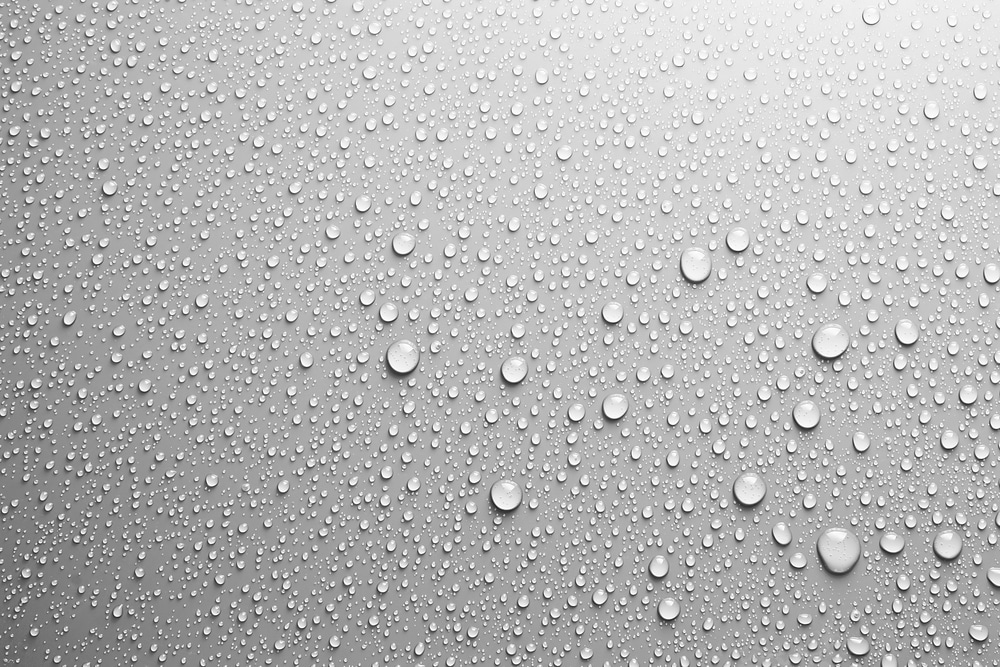Summer and fall in the south bring hot weather, pop-up storms, and humid air. When the air systems in our home are all working fine, stepping inside is a well-deserved respite from the heat and humidity. But when something goes wrong, even our house can feel like a steamy sauna.
If the air in your home is feeling sticky and humid, it could mean there are issues with your air conditioner or something more.
About home humidity
The first thing to know about humidity in your home is that it’s natural. Our everyday activities produce humidity — from laundry to washing dishes to showering or even breathing. Your basement or crawl space can also bring in the humid air.
While you can’t avoid producing moisture, too much can affect the health of your home and your family. Ideally, the humidity levels in your home should be between 40-55%. If you’re noticing things that feel too sticky during the summer or excess condensation during the winter, your inside air might have too much moisture.
Pro tip: Get a hygrometer/humidity monitor (or two) to measure relative humidity levels in your home. You can pick them up inexpensively on Amazon or a local hardware store.
The effects of excess humidity
Too much humidity in your home can have effects both on your family and your possessions:
Bacterial growth
Bacteria thrive in warm, damp environments. Keep an eye on places you know will have more air moisture than others (like the bathroom or basement) to catch it early. Bacteria also thrive in dark places with little air circulation. Check closets, draperies, and rugs that haven’t been moved in a while.
Bugs and mites
Dust mites are one of the most common causes of asthma in the United States. They prefer warm, humid air. In fact, they can barely survive indoors in temperatures below 71 degrees Fahrenheit and in relative humidity below 45%.
Technology
Electronics are susceptible to damage from moisture, which can corrode wires and circuitry. Dramatic humidity changes can cause them to short-circuit.
Health effects
Bacterial spores, allergens, and dust mites can cause allergy flare-ups for you and your family. If you notice that your eyes are watering excessively, you’re sneezing, or have a runny nose, it could be a sign of excess humidity in the air.
Ways to prevent excess humidity
If you notice your home has high humidity levels, you can do a few things to get it back to its optimal range.
Air conditioning
An efficient air conditioning system will reduce moisture in your home. Cold air can hold less moisture, so your AC will remove moisture from the air it circulates. If your AC is running and the air still feels humid, call an HVAC professional for help.
Exhaust fans
Pay special attention to the rooms in your home that have more natural moisture, such as your bathroom, kitchen, and laundry room. Make sure to run exhaust fans to pull moist air from the inside, especially in the summer. Check your dryer vent to make sure it’s sending warm, damp air outdoors.
Windows and storm doors
While these have a greater effect in the winter, new windows and doors can improve your home’s energy efficiency in any season. During cold months, double-pane windows are particularly helpful in reducing the effects of cold air on interior surfaces.
Air circulation
Leave doors open so that air can circulate between rooms. Check to ensure your air vents are open to keep air flowing throughout your home.
Pipes
Insulate cold water pipes to prevent condensation in warm summer months. Dripping water can get behind walls and produce bacterial growth.
Dehumidifier
The most effective way to reduce the humidity in your home is to use a dehumidifier. They’re especially useful in basements or crawl spaces that feel damp year-round. You can find dehumidifier options for every area of your home. If you have questions, ask your HVAC professional what the best option is for you.
Lee Company can help!
When it feels like the humidity has followed you into your home, take action before it leads to bigger problems. If you have questions about how to take action, call us today!
Did You Know We Offer HVAC Financing?
Our expert technicians will do everything they can to repair your HVAC system and get it back in working order. Unfortunately, replacement is sometimes inevitable. If your HVAC system needs to be replaced, it’s good to know you have options. That’s why Lee Company offers special HVAC financing on new units.
Humidity in the Home FAQs
How can I reduce humidity in my home?
You can reduce humidity by using a dehumidifier, improving ventilation, sealing leaks, and running exhaust fans in areas like kitchens, bathrooms, and other spaces where water is present.
What causes high humidity in a house?
In the Southeast, high humidity is the norm. In a house, high humidity can be caused by poor ventilation, excess moisture from cooking or showers, leaks, or insufficient air conditioning.
Why is my house always 70% humidity?
Your home’s humidity may stay high due to inadequate ventilation, an overworked HVAC system, or living in a naturally humid climate. You might need to adjust your system or add a dehumidifier.
Why is my house so humid even with the AC on?
If your house is still humid with the AC on, it could be because the AC is too large, short cycling, or not removing enough moisture from the air. A professional HVAC tune-up might help.
Does your HVAC system need to be serviced? Contact Lee Company today!
REQUEST AN APPOINTMENT

